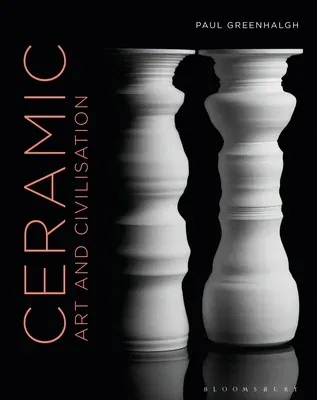In his major new history, Paul Greenhalgh tells the story of ceramics as
a story of human civilisation, from the Ancient Greeks to the present
day. As a core craft technology, pottery has underpinned domesticity,
business, religion, recreation, architecture, and art for millennia.
Indeed, the history of ceramics parallels the development of human
society.
This fascinating and very human history traces the story of ceramic art
and industry from the Ancient Greeks to the Romans and the medieval
world; Islamic ceramic cultures and their influence on the Italian
Renaissance; Chinese and European porcelain production; modernity and
Art Nouveau; the rise of the studio potter, Art Deco, International
Style and Mid-Century Modern, and finally, the contemporary explosion of
ceramic making and the postmodern potter. Interwoven in this journey
through time and place is the story of the pots themselves, the
culture of the ceramics, and their character and meaning. Ceramics
have had a presence in virtually every country and historical period,
and have worked as a commodity servicing every social class. They are
omnipresent: a ubiquitous art. Ceramic culture is a clear, unique,
definable thing, and has an internal logic that holds it together
through millennia. Hence ceramics is the most peculiar and extraordinary
of all the arts. At once cheap, expensive, elite, plebeian, high-tech,
low-tech, exotic, eccentric, comic, tragic, spiritual, and secular, it
has revealed itself to be as fluid as the mud it is made from.
Ceramics are the very stuff of how civilized life was, and is, led. This
then is the story of human society's most surprising core causes and
effects.

